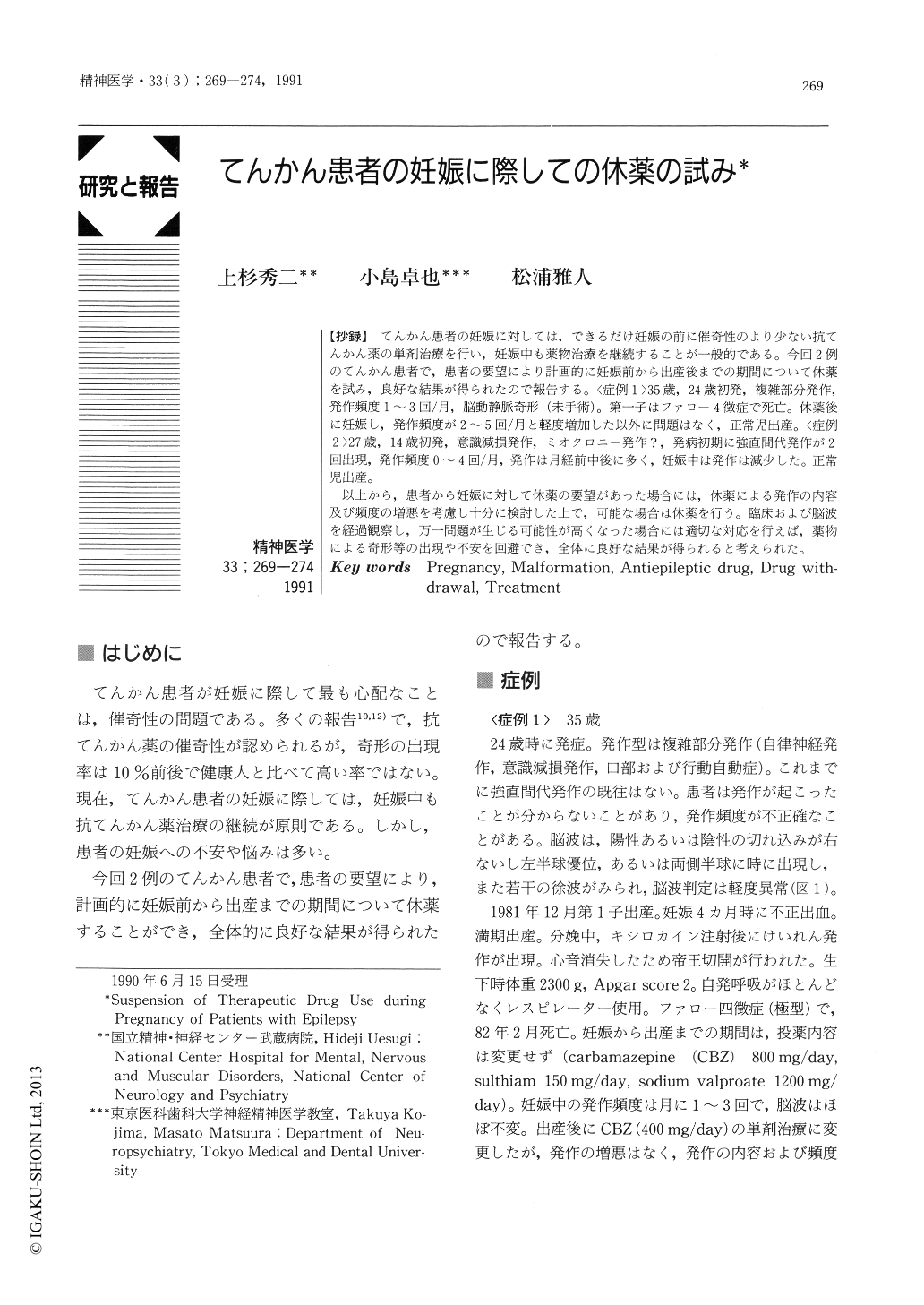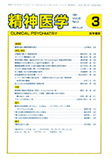Japanese
English
- 有料閲覧
- Abstract 文献概要
- 1ページ目 Look Inside
【抄録】 てんかん患者の妊娠に対しては,できるだけ妊娠の前に催奇性のより少ない抗てんかん薬の単剤治療を行い,妊娠中も薬物治療を継続することが一般的である。今回2例のてんかん患者で,患者の要望により計画的に妊娠前から出産後までの期間について休薬を試み,良好な結果が得られたので報告する。〈症例1〉35歳,24歳初発,複雑部分発作,発作頻度1〜3回/月,脳動静脈奇形(未手術)。第一子はファロー4徴症で死亡。休薬後に妊娠し,発作頻度が2〜5回/月と軽度増加した以外に問題はなく,正常児出産。〈症例2〉27歳,14歳初発,意識減損発作,ミオクロニー発作?,発病初期に強直間代発作が2回出現,発作頻度0〜4回/月,発作は月経前中後に多く,妊娠中は発作は減少した。正常児出産。
以上から,患者から妊娠に対して休薬の要望があった場合には,休薬による発作の内容及び頻度の増悪を考慮し十分に検討した上で,可能な場合は休薬を行う。臨床および脳波を経過観察し,万一問題が生じる可能性が高くなった場合には適切な対応を行えば,薬物による奇形等の出現や不安を回避でき,全体に良好な結果が得られると考えられた。
By consideration of the following points, it is thought possible to suspend medication for the treatment of epilepsy when the patient becomes pregnant and requests the withdrawal of the drug.
1) The types and frequency of seizure should be considered first. If the patient has tonic-clonic seizures and has recently had secondarily generalized seizures, or if it is highly possible that these types of seizures may occur due to withdrawal even if the patient has not had them recently, withdrawal of the drug is considered unwise since it may adversely affect the pregnancy through trauma, etc. caused by seizures. For the types other than those described above, before carrying out withdrawal, careful study should be made of the social and domestic problems which might be caused due to exacerbation and increased frequency of seizures which may result from the withdrawal.

Copyright © 1991, Igaku-Shoin Ltd. All rights reserved.


